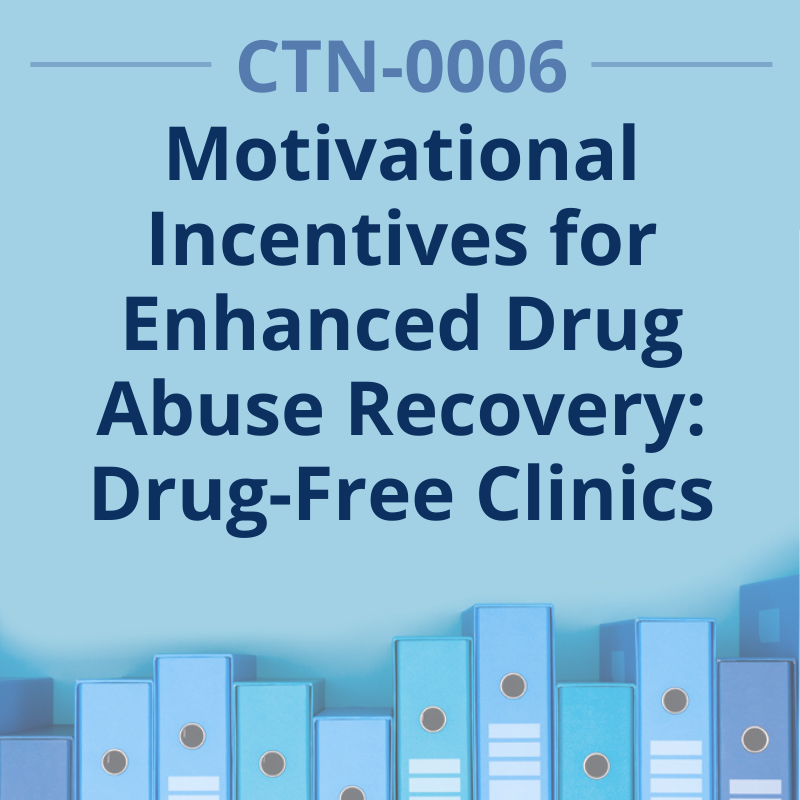CTN-0006: Motivational Incentives for Enhanced Drug Abuse Recovery: Drug Free Clinics

Maxine Stitzer, PhD
Lead Investigator
Johns Hopkins University School of Medicine
mstitzer@mail.jhmi.edu
To improve outcomes for treatment of drug abuse, it is necessary to use interventions that can motivate clients to attend treatment and initiate and sustain abstinence. This study in counseling-based drug-free clinics evaluated the effectiveness of abstinence-based incentives considerably lower in cost than those typically used in research clinics. The primary aim was to determine whether introduction of abstinence-based incentives targeting (a) drug abstinence and (b) patient retention into usual care improves these treatment outcomes, compared to usual care alone. 415 cocaine or methamphetamine users from eight counseling-based outpatient drug-free clinics were randomly assigned to receive usual care plus abstinence-based incentives or to receive usual care alone for 12 weeks.
Primary Findings
Patients assigned to the abstinence-based incentive condition remained in treatment longer and submitted a greater percentage of substance-free urine samples, compared to patients assigned to the usual care condition. Prizes cost on average $ 203 per patient, or $ 2.42 per patient per day. A low-cost abstinence-based procedure was effective in enhancing retention and drug-abstinence outcomes in counseling-based drug-free clinics.

Primary Outcomes Article: Petry N, et al. Effect of prize-based incentives on outcomes in stimulant abusers in outpatient psychosocial treatment programs. Archives of General Psychiatry 2005;62:1148-1156.
Related Resources
- CTN-0006 Study Protocol
- Publications in the Library about CTN-0006
- Study data from NIDA Data Share
- Blending Team Product: Promoting Awareness of Motivational Incentives (PAMI)
- Study Manual: Higgins C. The Contingency Management (CM) Checklist. Unpublished manual, Mid-Atlantic Node, 2006
- ClinicalTrials.gov (NCT00033007)
- NIDA protocol page
Node Involvement
Lead Node(s):
All Participating Nodes: